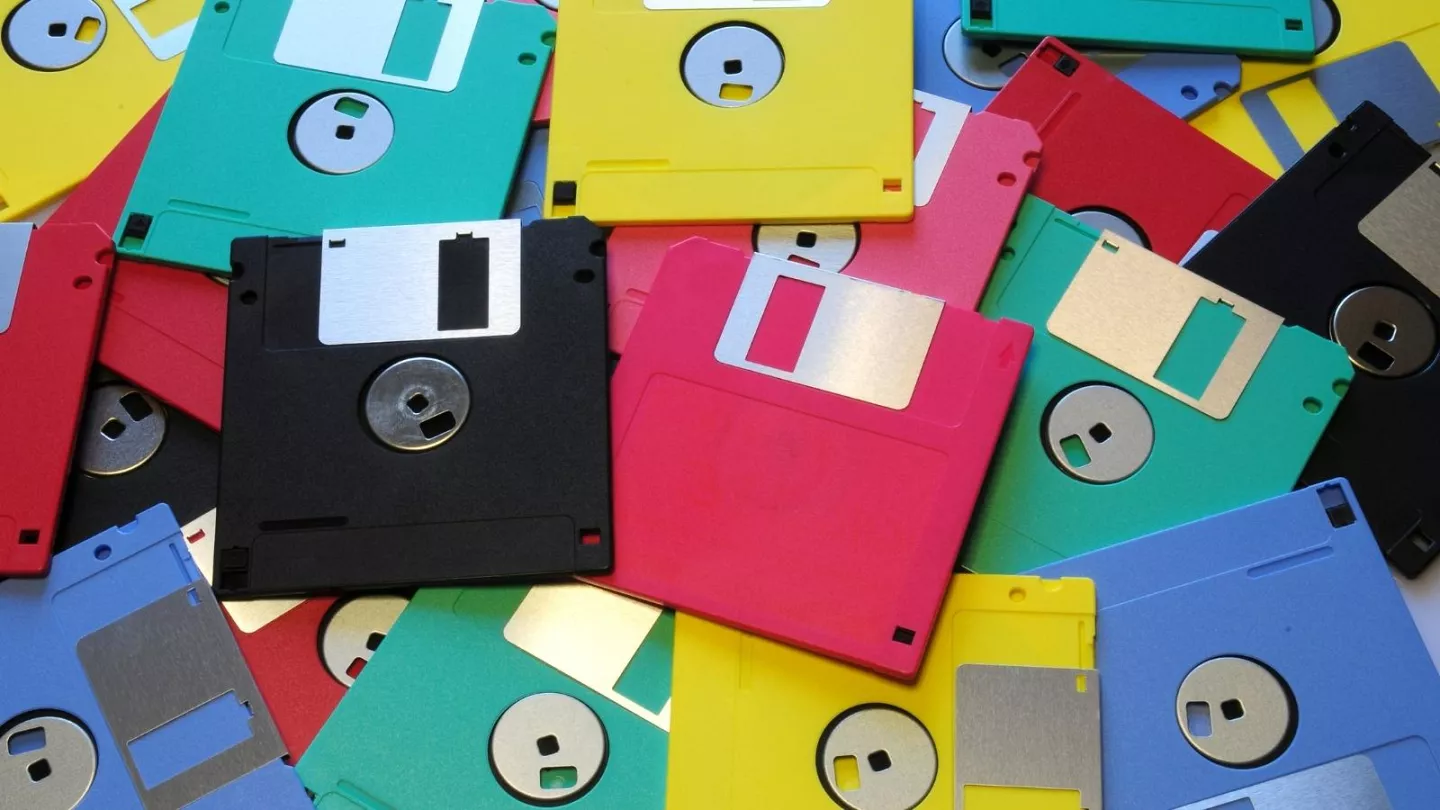We live in an era of neural networks, foldable phones, and AI that can write you a poem about your Wi-Fi router. And yet—behind the scenes—some of the world’s most critical systems are still powered by tech that belongs in a museum… or RadioShack circa 1989.
Welcome to the quiet legacy of old-school innovation: five pieces of “dead” tech that refuse to die, and in some cases, still outperform their modern replacements.
1. Floppy Disks: Still Flying Planes (Yes, Really)
You might know them as the “Save” icon. But long before they were just nostalgic UI filler, floppy disks were the backbone of data storage. With their whopping 1.44 MB capacity (enough for about half a JPEG in 2025), they ruled the ’80s and ’90s.
Dead, right? Not quite.
In aviation, they’re still quietly updating software on older Boeing 737s and 747s—one disk at a time, every 28 days. Same goes for parts of San Francisco’s train control system and air traffic control around the world. It’s a logistical nightmare, sure—but here’s the plot twist: when the 2024 CrowdStrike outage brought modern systems to their knees, these floppy-fed machines didn’t even flinch.
When tech is too old to crash, that’s not a bug. It’s resilience.
2. Windows XP: Still Paying Your Bills
Official support ended in 2014. Security updates? Ancient history. But Windows XP lives on in bank ATMs, medical imaging machines, industrial CNC setups, and—allegedly—military hardware that shall remain nameless.
Why? Because it works. And because replacing it across global infrastructure is a logistical, financial, and regulatory nightmare.
Some businesses operate on the “if it ain’t broke, don’t upgrade” philosophy. For XP, that’s been stretched well past its expiration date—but like your dad’s 2005 Corolla, it just keeps chugging.
3. COBOL: The Language That Moves Your Money
COBOL (Common Business-Oriented Language) turns 65 this year, and it’s not retiring anytime soon. Behind the scenes of your tap-to-pay transaction and online bank balance refresh, COBOL is quietly moving trillions.
According to Reuters, it still handles:
- 95% of ATM transactions
- 80% of in-person credit card swipes
- Nearly half of core banking systems globally
The catch? Hardly anyone wants to write COBOL anymore. Universities don’t teach it. Modern devs avoid it like Windows ME. But banks and governments can’t ditch it because… there’s no modern equivalent that can replace its reliability at scale.
It’s the software equivalent of trying to retire the postal system because email exists. It’s not that simple.
4. Pagers: Still Buzzing in Hospitals and ERs
You’d think pagers died with frosted tips and Motorola flip phones. But they’re still alive—especially where it counts.
Emergency services and hospitals rely on them for one simple reason: they just work. Pagers use a separate, analog-based radio network that’s more reliable during disasters and in low-signal environments. When your phone is struggling to find a bar, a pager just quietly beeps.
They’re tough, low-power, untrackable, and impossible to hack with a phishing link. In a high-stress, high-stakes field, simplicity wins.
5. Fax Machines: Because Some Lawyers Still Think It’s 1997
Email is fast. Messaging apps are encrypted. Cloud storage is everywhere. And yet—fax machines continue to send paper documents at a glacial pace through phone lines.
Why? Security and legality.
In healthcare, law, and some branches of government, fax machines offer something rare: a direct, unencrypted point-to-point connection with a timestamped paper trail. No middleman servers, no firewalls to breach. Just one analog scream down the line.
In 2021, Japan literally tried to outlaw fax machines in government offices. The pushback was so fierce they gave up.
Fax is dead. Long live fax.
Final Thought: Ancient Doesn’t Mean Obsolete
Some of the most critical infrastructure in the world is held together by old tech duct tape. Not because we’re lazy—but because in certain high-stakes environments, reliability matters more than trendiness.
Sure, you’ve got an iPhone that can record spatial video. But somewhere, a floppy disk is keeping a plane in the sky. And that, frankly, is beautiful.






